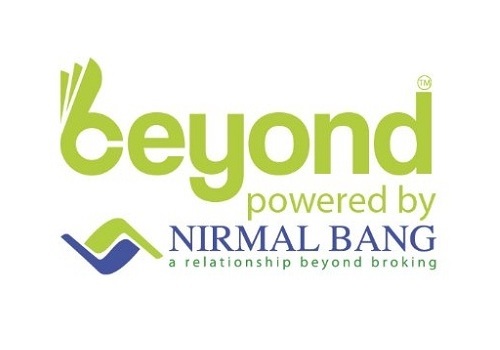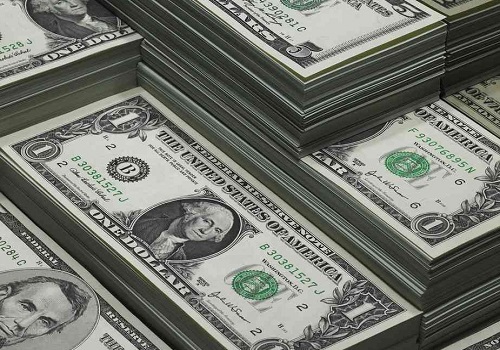Markets end sharply lower after RBI hikes repo rate
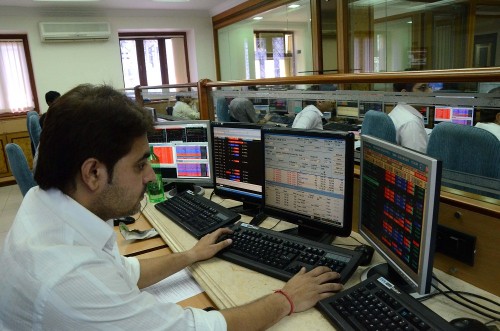
Indian equity markets ended lower for the third consecutive session, falling over 2 per cent on Wednesday after the Reserve Bank of India (RBI) announced a surprise repo rate hike in an unscheduled meeting. The markets, were, already on tenterhooks awaiting the US Federal Reserve meeting outcome later tonight, wherein a 50 bps rate hike is anticipated. After making slightly positive start, markets soon turned negative and stayed in red for whole day as some cautiousness came in with the International Monetary Fund (IMF) said India may only become a $5-trillion economy in FY29. According to data from the IMF's World Economic Outlook Database, updated last month, India's nominal GDP is seen rising to $4.92 trillion in FY28. As such, it will only be in the following year, or FY29, that the GDP will cross the $5-trillion mark. Traders also took a note of rating agency ICRA’s statement that the state government borrowings through the bond market could be lower by Rs 50,000 crore in Q1FY23 at Rs 1.4 trillion.
Markets traded deep in red in late afternoon session after Reserve Bank of India (RBI) has increased the policy repo rate under the liquidity adjustment facility (LAF) by 40 basis points to 4.40 per cent with immediate effect. RBI said core inflation is likely to remain elevated in the coming months, reflecting high domestic pump prices and pressures from prices of essential medicines. It also said renewed lockdowns and supply chain disruptions due to resurgence of COVID-19 infections in major economies could sustain higher logistics costs for longer. Adding more concerns among traders, a paper by the National Council of Applied Economic Research (NCAER) said that India should take a cautious approach towards launching a central bank digital currency (CBDC) as it could be hazardous to institutions, retail-end users, and to the reputation of the central bank. Traders overlooked data indicated that India's merchandise exports rose by 24.22 percent to $38.19 billion in April 2022 as compared to $30.75 billion in April 2021 on account of healthy performance by sectors like petroleum products, electronic goods, and chemicals.
On the global front, Asian markets ended mostly lower on Wednesday, while European markets were trading lower ahead of the Federal Reserve's monetary policy announcement due out later in the day. A 50-bps rate hike and the launch of balance sheet reduction are on the table, with market participants certainly fearing a more hawkish tone to fight inflation, which is at a four-decade high. Investors will be watching to see how Fed Chair Jerome Powell frames the future outlook. Geopolitical tensions also remained on investors' radar as the EU proposed gradual ban on Russian oil in sixth round of sanctions against Moscow.
Back home, housing finance company stocks were in focus with Icra's report that affordable housing finance companies' (AHFCs) loan book is likely to expand by 17-20 per cent in the current financial year, supported by the government's higher focus on housing and a favourable tax regime. Besides, coal industry stocks were in watch as India’s coal output soared by 28 per cent to 66.1 million tonnes (mt) in April amid high demand from thermal power plants as several parts of the country grappled with power shortage.
Finally, the BSE Sensex fell 1306.96 points or 2.29% to 55,669.03 and the CNX Nifty was down by 391.50 points or 2.29% to 16,677.60.
The BSE Sensex touched high and low of 57,184.21 and 55,501.60, respectively. There were 3 stocks advancing against 27 stocks declining on the index.
The broader indices ended in red; the BSE Mid cap index fell 2.63%, while Small cap index was down by 2.11%.
The top losing sectoral indices on the BSE were Consumer Durables down by 3.88%, Realty down by 3.31%, Consumer Disc down by 3.01%, Healthcare down by 2.92% and Metal down by 2.89%, while there were no gaining sectoral indices on the BSE.
The top gainers on the Sensex were Power Grid Corporation up by 2.75%, NTPC up by 0.73% and Kotak Mahindra Bank up by 0.07%. On the flip side, Bajaj Finance down by 4.29%, Bajaj Finserv down by 4.18%, Titan Company down by 4.11%, Indusind Bank down by 3.98% and HDFC Bank down by 3.34% were the top losers.
Meanwhile, SBI research in its latest Ecowrap report has said that the share of incremental bank credit in incremental nominal Gross Domestic Product (GDP) is likely to cross the 50 per cent mark in the current financial year (FY23), from a decade low of 27 per cent in FY2022. The incremental credit to GDP share was as high as 63 per cent in the pre-pandemic year (FY19). The average share was 50 per cent for the seven-year period ended FY20. A higher credit-to-GDP ratio indicates aggressive and active participation of the banking sector in the real economy, while a lower number shows the need for more formal credit.
The report said ‘for FY23, we believe that the share of bank credit may again breach the 50 per cent mark indicating the increasing role of banks in economic growth’. In the fiscal ended 2021-22, banks' credit grew by 9.6 per cent, driven by all major sectors. FY22 ended with an incremental credit growth at Rs 10.5 lakh crore, 1.8 times higher than growth of Rs 5.8 lakh crore in FY21. Segment-wise, the jump in credit to MSMEs and infrastructure was strong at Rs 2.3 lakh crore while credit to housing and the NBFC sector was close to Rs 2 lakh crore. Retail loans expanded by a sharp Rs 3.7 lakh crore, driven by a surge in personal loans apart from housing credit. Credit to agriculture was at Rs 1.3 lakh crore.
As per the report, it seems that the economy was able to shrug off, to a large extent, the aftereffects of the pandemic as credit growth was broad-based across all sectors. It further said that it is now evident that an expansion in public sector bank (PSBs) credit is crowding in credit growth from private sector banks (PVB). Once this trend turns into a self-fulfilling prophecy, the economy stands to benefit. In FY22, the weighted contribution of PSBs in overall credit growth was as much as 43 per cent, which is a steady rise from the lows of 27 per cent in FY19. Simultaneously, the share of PVBs in credit growth has declined from 65 per cent to 47 per cent for the year ended FY22.
The report said even as the outlook of credit growth looks positive in FY23 also, the current inflation trends could play a spoilsport as rate hikes could have a dampening impact on credit demand just as the economy has been turning round the corner. The report said an RBI study indicates that an increase (decrease) in policy rate by 100 basis points causes the credit to decline (increase) by 1.95 per cent with a lag of six quarters. It added ‘our regression results involving credit growth and policy rate (monthly data from January 2009 to April 2020) reveal that an increase (decrease) in policy rate by 100 basis points causes the credit to decline (increase) by less than 1 per cent’.
The CNX Nifty traded in a range of 17,132.85 and 16,623.95. There were 5 stocks advancing against 45 stocks declining on the index.
The top gainers on Nifty were ONGC up by 3.84%, Britannia Industries up by 3.29%, Power Grid Corporation up by 2.57%, NTPC up by 0.73% and Kotak Mahindra Bank up by 0.09%. On the flip side, Apollo Hospital down by 6.59%, Adani Ports &SEZ down by 5.21%, Hindalco down by 4.78%, Titan Company down by 4.46% and Bajaj Finance down by 4.18% were the top losers.
European markets were trading lower; UK’s FTSE 100 decreased 41.70 points or 0.55% to 7,519.63, France’s CAC decreased 33.22 points or 0.51% to 6,442.96 and Germany’s DAX decreased 31.91 points or 0.23% to 14,007.56.
Asian markets ended mostly lower on Wednesday ahead of the US Federal Reserve's monetary policy announcement due out later in the day where the central bank is expected to aggressively raise its interest rates by 50 basis points. Market sentiments weakened further by lingering geopolitical tensions as the European Union proposed gradual ban on Russian oil in sixth round of sanctions against Moscow. Meanwhile, most of the markets were closed today for holidays.
Above views are of the author and not of the website kindly read disclaimer


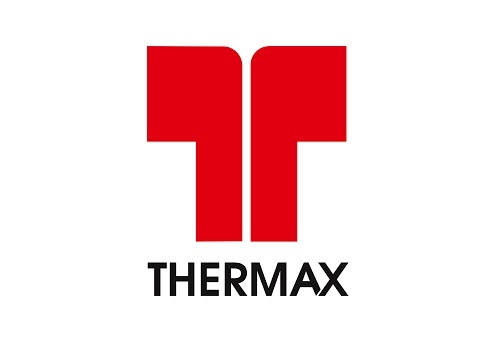



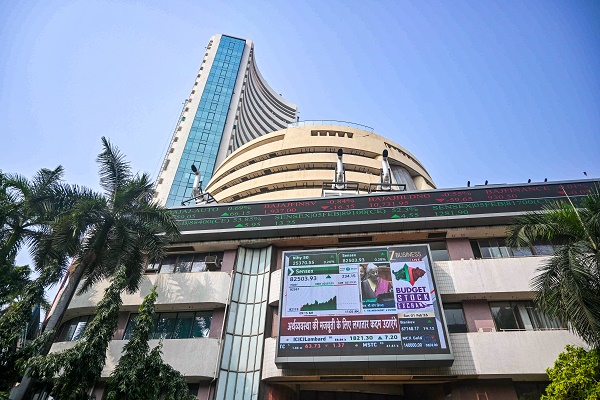

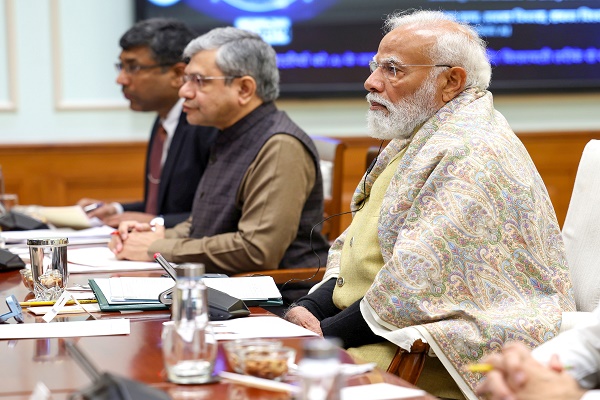

Tag News
More News

Quote on Morning Market 18th July 2025 by Dr. V K Vijayakumar, Chief Investment Strategist, ...
